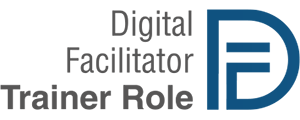DIGITAL TOOLS AND BEST PRACTICES IN THE USE OF GAMIFICATION, ANALYTICS AND ARTIFICIAL INTELLIGENCE IN EDUCATION
The research report gathers best practices in the use of Gamification, AI, and Data Analysis tools in education, specifically in the new solutions achieved during the COVID-19 pandemic. As well as an assessment of the most useful tools and platforms in digital education and the competencies required by educators to implement them.
TRANSNATIONAL RESEARCH: THE GAPS AND NEEDS IN DIGITAL COMPETENCIES OF VET EDUCATORS
This report assesses the gaps in digitalization of 117 educators from Spain, Romania and Turkey in Vocational Education and Training, performed through an online evaluation tool. The quantitative research results provide an overview of educators’ level of competencies, thus reflecting the actual needs of the VET community in digital skills.
TRANSNATIONAL RESEARCH: THE GAPS AND NEEDS IN DIGITAL COMPETENCIES OF VET STUDENTS
This report assesses the gaps in digitalization of 182 students from Spain, Romania and Turkey in Vocational Education and Training, performed through an online evaluation tool. The quantitative research results provide an overview of learners’ level of competencies, by assessing their digital skills in multiple areas. Thus, this report reflects the specific gaps of learners in relation to: communication, management and organization, collaboration, learning, creativity, and evaluation.
REPORT FROM INTERVIEWS WITH VET WORKERS, NGO STAFF AND E-LEARNING ASSOCIATIONS
The Interviews Report collects the responses of key individuals of the VET community, VET workers and trainers, NGO staff, and experts in digital education solutions. The interviews aim at collecting first-hand information on the insides of digital education and the competencies required in educators. Following the model of the European Framework for the Digital Competence of Educators: DigCompEdu; the Report gathers the perspective in the six areas of competencies of the Framework, from nine key individuals of Spain, Romania, and Turkey.
THE DIGITAL FACILITATOR TRAINER ROLE. GUIDELINES FOR VET TEACHERS AND TRAINERS. From Spain, Turkey, and Romania
Digital Facilitator Trainer role represents a comprehensive pedagogical methodology which includes ITC tools to insert in the field of digital education. This study seeks to answer to the following question: How can a trainer become a digital one? The solution is presented in these guidelines for instruction, through the application of the principles of the 5E instructional model. The purpose of the guidelines is to successfully support educators in the definition and inclusion of digital resources in their teaching, specifically in the fields of gamification, data analytics and AI, during the instruction phase.
THE DIGITAL FACILITATOR TRAINER ROLE. COMPETENCE MAP FOR VET TEACHERS AND TRAINERS. From Spain, Turkey, and Romania
DigiFacT competence map sums up the attitudes, skills and knowledge required by VET educators to became digital ones, and to introduce ICT tools in their teaching to enhance the learning experience of students. It is aimed to help educators understand and asses the digital skills they required, identify their needs and gaps, and work towards improving their competencies. DigiFacT takes the European Framework for the Digital Competence of Educators (DigCompEdu) as their reference document in order to identify the areas of competence to be addressed by the project map.
THE ROLE OF THE DIGITAL FACILITATOR IN VOCATIONAL EDUCATION
The development and use of digital technologies has spread widely across education and society, accelerated by the COVID-19 pandemic. Rapid growth and increased access to technologies are said to bring new possibilities for teaching and learning. The digitisation of education is a powerful trend in terms of reform and modernisation of the global educational environment. In this context, the role of the Digital Facilitator Trainer represents a comprehensive pedagogical methodology that embraces the inclusion of ICT tools into the digital education environment.
HARNESSING AI, GAMIFICATION AND DATA ANALYSIS IN VET DIGITAL FACILITATION
The Digital Facilitator Trainer (DFT) course consists of four key components. It includes the VET Digital facilitator competence map for assessing and improving digital skills. The course also covers gamification, data analysis, and AI tools, and guides educators on implementing the 5E Model of instructional design. Through these components, educators enhance their digital competencies and create engaging learning experiences for students.
